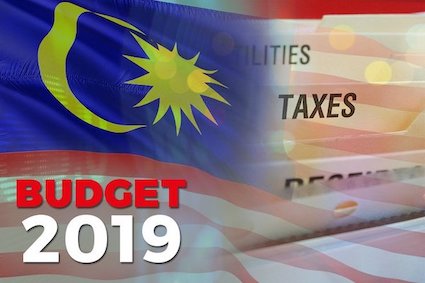Govt needs to find new revenue to address GST removal, says bank

(FMT) – The Budget 2019 shows a lack of sustainable revenue measures being proposed to address the shortfall in revenue after the goods and services tax (GST) was replaced with the sales and service tax (SST), according to Standard Chartered (StanChart).
It said expenditure rationalisation and leveraging of assets are short-term measures.
The leveraging of assets includes raising RM4 billion from selling a 30% stake of the Airport Real Estate Investment Trust that the government intends to set up.
In the more immediate term, the government may still have to find new revenue measures to address the removal of GST, in addition to enhancing tax compliance, it said in its “on the ground” Global Research note today in response to the proposals in the Budget 2019 announced yesterday.
Reliance on oil has also been proven to be vulnerable to the swings in global commodity markets while other new measures in the Budget 2019, such as higher real property gains tax and sugar tax, will only provide slight support to revenue, it said.
Nevertheless, it is comforting that the government has noted in its medium-term fiscal framework that non-petroleum revenue is still expected to remain the largest revenue source, it added.
According to StanChart, the new government has maintained a fiscal consolidation stance. The increased transparency of the fiscal balance sheet, with the settlement of income tax and GST refunds, were positive.
As for fiscal reforms, among others, the government will be establishing a Debt Management Office to review government debts and liabilities while the Fiscal Responsibility Act is to be proposed by 2021 to avoid uncontrolled spending.
Meanwhile, the slow fiscal consolidation could add to the risk of negative rating action as the new government intends to lower its fiscal deficit to 3.0% only by 2020.
The 2018 fiscal deficit estimate of 3.7% and the 2019 fiscal deficit forecast of 3.4% are significantly higher than the previous government’s forecasts.
“We think the slower-than-expected fiscal consolidation increases the risk of negative rating action, especially by Moody’s (A3 stable) and Fitch’s (A- stable).
“These agencies were expecting Malaysia to maintain the fiscal consolidation trend despite the dent in revenue from the replacement of GST by SST,” it explained.
As for forex, StanChart said the Budget announcement was unlikely to be a positive trigger for the ringgit.
Portfolio inflows remain subdued in the months ahead of the budget announcement as foreign investors preferred to wait for more policy clarity from the new administration.
“However, with wider-than-expected fiscal deficit targets and risks of negative rating action, we think it is unlikely that portfolio inflows will pick up meaningfully unless broader risk sentiment reverses,” it said in maintaining its short-term neutral forex weighting on the ringgit.

